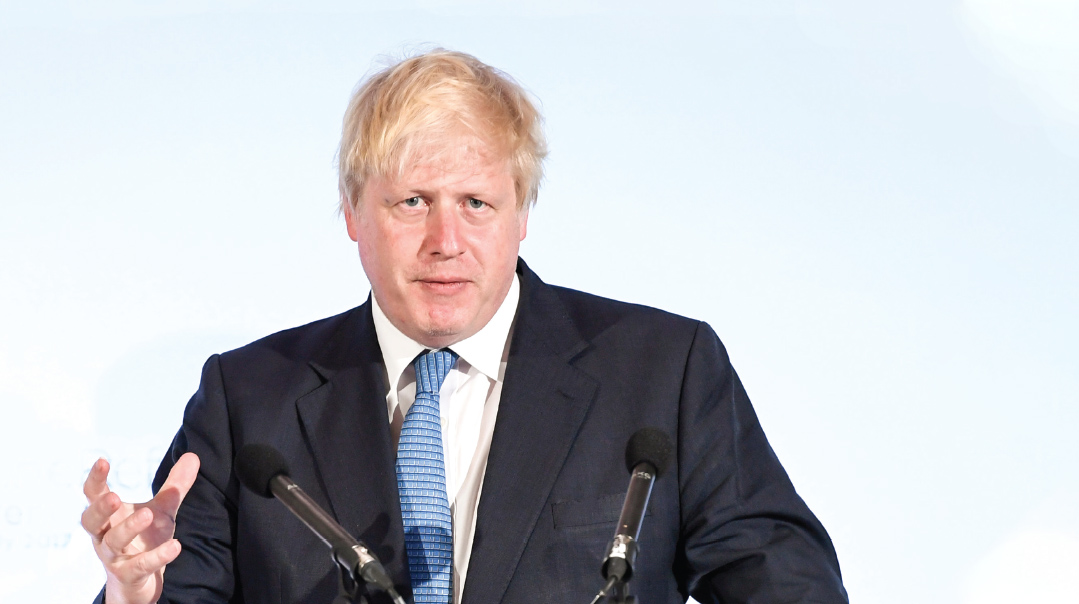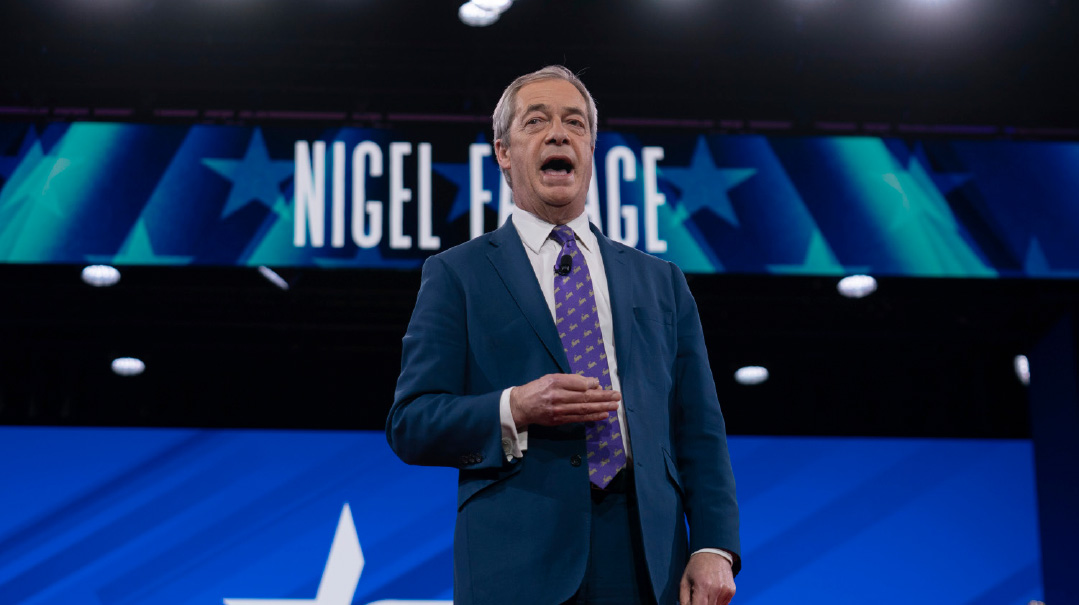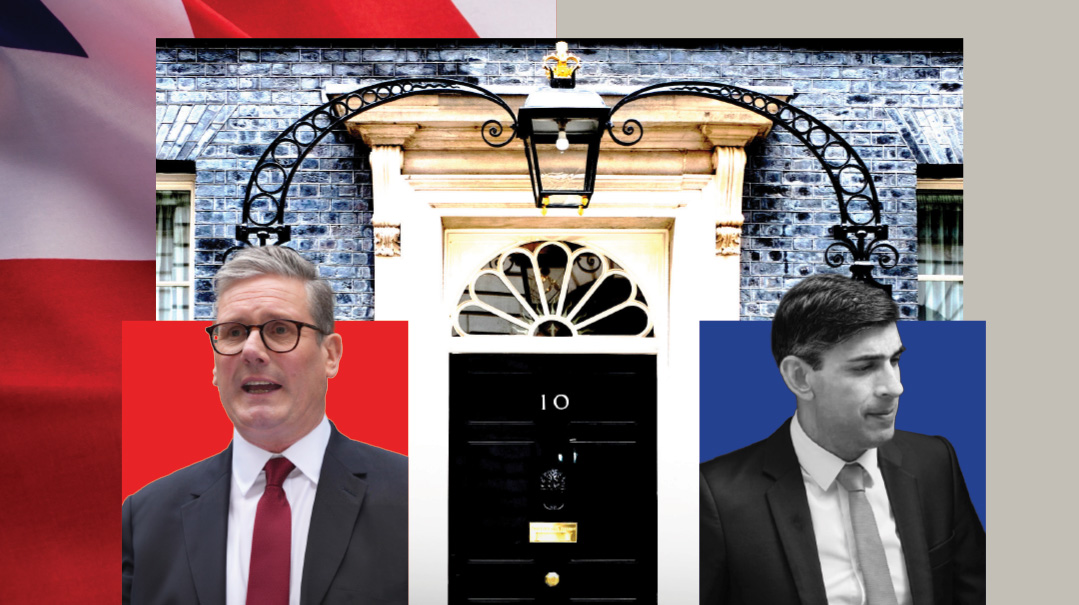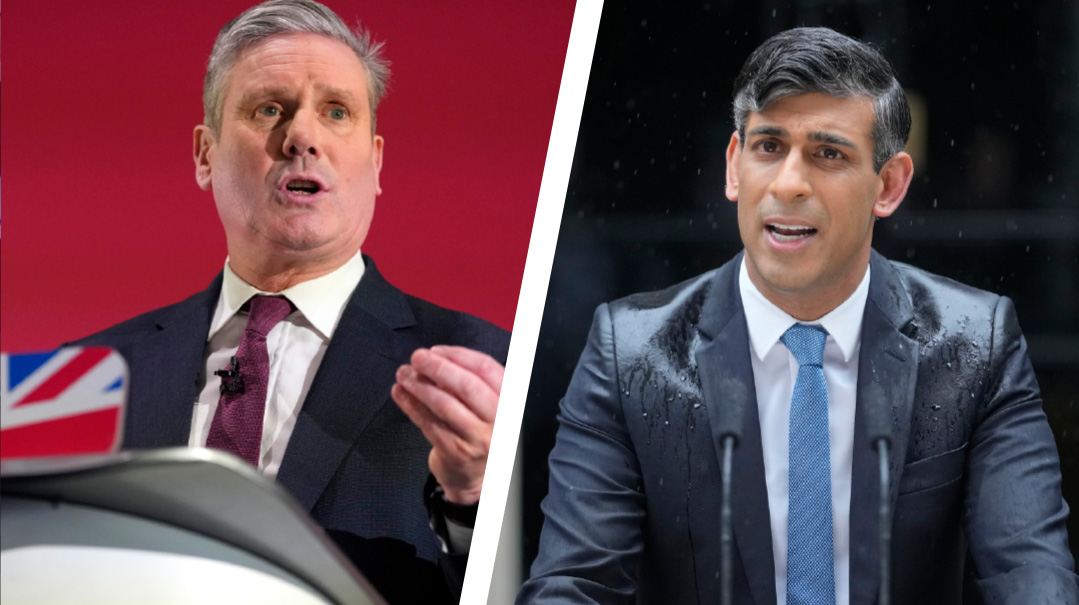Boris and Fortress Britannia

What strategy will Boris use to pull off Brexit? A pocket guide to the drama ahead

“Night of the Blond Knives,” the commentators called it. Within 24 hours of taking up residence in 10 Downing Street, 17 senior Cabinet ministers had gone, as Boris Johnson ruthlessly purged the remnants of Theresa May’s dead-in-the-water government.
But if Johnson moved quickly, that’s because he had no choice. Before the 100-day grace period that a new prime minister normally enjoys is up, October 31 will be upon us. That’s the day when Boris, as he’s universally known, has promised to deliver Brexit, “do or die.”
Given that the European Union came out on top in three years of negotiations, the odds of achieving that are steep. But if he doesn’t, the joke will be on the famously irreverent Johnson — and Britain’s Jewish community as well. A general election could well deliver Jeremy Corbyn’s semi-socialist, Israel-baiting, anti-Semitism-flavored Labour government.
So what strategy will Boris use to pull off Brexit? Here is a pocket guide to the drama ahead.
1.
Meet Boris For the first time since Tony Blair stepped down in 2008, Britain now has a prime minister with global name recognition, as I discovered last week in a Jerusalem electric store. Sitting opposite a bank of widescreen TVs playing Israel’s election politics, all the salesman wanted to talk about was “Boris.” Ever one to recognize a fellow winner, the US president has spoken approvingly of “Britain Trump.” Unsurprisingly, EU leaders aren’t as enamored of Johnson; they see him as an unserious clown, who has been lampooning Brussels since his stint covering the EU as a journalist in the ’90s.
Having been the most prominent “Leave” campaigner in the 2016 Brexit referendum, Boris was foiled in his leadership bid three years ago by erstwhile ally Michael Gove, who ran against him and split the vote against May. But as Johnson biographer Andrew Gimson has written, Johnson is a “war leader” —a choice not for normal times, but for the political crisis that the Brexit deadlock has become.
2.
The EU If Brexit were a boxing match, then the European Union almost knocked out Britain in the first round. Since 2016, the EU’s 27 member states have managed to present a united front against the UK, wearing down Theresa May’s position to produce a withdrawal agreement widely seen as humiliating for Britain — and leaving the EU looking far stronger than they have in years.
Expect Brexit negotiations round two to get dirty very quickly. Johnson has armed himself with a war cabinet designed to push through a No Deal Brexit should the EU refuse to budge on its previous red lines. And the EU’s reaction to Johnson’s opening speech showed they’re aware that Boris is far more formidable than his predecessor, calling his first speech “rather combative.”
3.
High strategy So against an unbroken EU defense line, what strategy will Boris use? Firstly, he will try to divide and conquer, seeking to negotiate bilaterally with EU countries and not with Brussels. As new foreign secretary Dominic Raab said, “Brussels isn’t the only game in town.” Johnson will use the threat of No Deal disruption to pressure Ireland, which shares a land border with the UK and is a major trade partner. The aim will be to persuade the EU to change the most problematic aspect of May’s deal: the so-called Irish “backstop.” If he can neutralize this poison pill, which would have kept Northern Ireland — and by extension Britain — within the EU orbit for years, this could conceivably pass muster with hard-line Brexit MPs and enable a new deal to pass.
The second tool will be the threat of No Deal Brexit itself. As much as it could damage the UK, the EU is vulnerable as well. With £345 billion, or 8%, of the EU’s exports heading to the UK, German car manufacturers and French wine exporters will be hit by a No Deal Brexit. And in the event of a No Deal, Johnson has threatened to withhold the £39 billion that the UK was expected to pay into the EU budget as part of a settlement.
4.
Boris and the Jews In a conversation last week, longtime Conservative Friends of Israel head Lord Stuart Polak said that “this is without exception a pro-Israel and pro-Jewish cabinet.” But as I wrote in a Mishpacha.com post last week after Johnson’s victory, the main story here is Brexit. Much as we like to reduce policy questions to “is it good for the Jews?” in this case, the real question is whether Boris is good for Brexit. Success or failure will determine whether Prime Minister Corbyn becomes a reality or not.
But interestingly, Boris’s rise to power may prove important for the other cloud that has hung over British Jews recently, which is the push to introduce anti-Torah values into Jewish schools. As documented in these pages, the previous education secretary Damian Hinds indicated that government policy was broadly in line with that of Ofsted, the official inspectorate that has been accused of militant liberalism. But the new education minister, Gavin Williamson, may prove to be more open to the needs of the Jewish community. His voting record, as seen on TheyWorkForYou, a website monitoring parliamentary activity, shows him to be more socially conservative than the Conservative Party as a whole. Could the embattled Jewish school system have Brexit to thank for a ray of light?
5.
Nail biting With just over 90 days remaining until the Brexit deadline on October 31, this is a high-wire act that could fall apart. If Johnson loses his majority in Parliament (now down to two), elections will be triggered. Although the latest YouGov poll shows that Conservatives have leaped ahead of Labour because of a “Boris bounce” and are now polling at 31% to Labour’s 21%, the risk is significant. According to another poll, if Labour were to ditch Corbyn, they would pass the Conservatives by 34% to 28%.
Johnson has ruled out calling elections before October 31, but he will need the threat of Corbyn to keep onside the Remainer wing of his party, including Scottish Conservative star Ruth Davidson, who spoke out against the new No Deal orientation of the party. But with the pro-Remain Liberal Democrats polling at 20%, Johnson could have a winning strategy in mind should elections be forced on him. Vilify the EU as foreign enemies of Fortress Britannia, rally the Conservatives around the flag, call elections to break the deadlock — and watch Labour (which is largely Remain but whose leader is pro-Brexit) be devoured by the Lib Dems.
Entertainment Politics
Whether or not Boris crashes and burns, one thing is for sure: Entertainment is back in British politics. After years in which the weekly Prime Minister’s Question Time was reduced to the drudgery of May and Corbyn — two non-debaters woodenly slugging it out — Boris’s first Commons session was a joy to behold.
Staring over the dispatch box at Corbyn and his allies on the opposite bench, he looked like Mike Pence in a bomber jacket glowering across the DMZ into North Korea. His fist-pumping, ebullient delivery brought the Conservative Party to life on the benches behind.
And it’s not just Johnson. Joining him on the front bench is Cabinet Secretary Michael Gove, a formidable speaker. And then there’s Jacob Rees-Mogg, perhaps the most colorful figure in the House of Commons. Clad in his trademark impeccable double-breasted suit, living in a country mansion and driving a Rolls-Royce, Rees Mogg is an unashamed throwback — nicknamed “the honourable member for the 18th century.” To round it off, he’s a notable parliamentary performer.
So much of politics is personal: a strong leader can rally MPs and inspire confidence to push through their political agenda. Johnson has the charisma to take on Corbyn. If he can deliver Brexit, this joker in the pack will have the last laugh.
(Originally featured in Mishpacha, Issue 771)
Oops! We could not locate your form.













